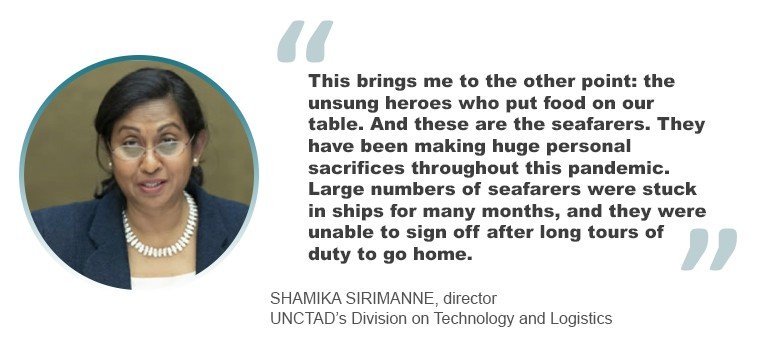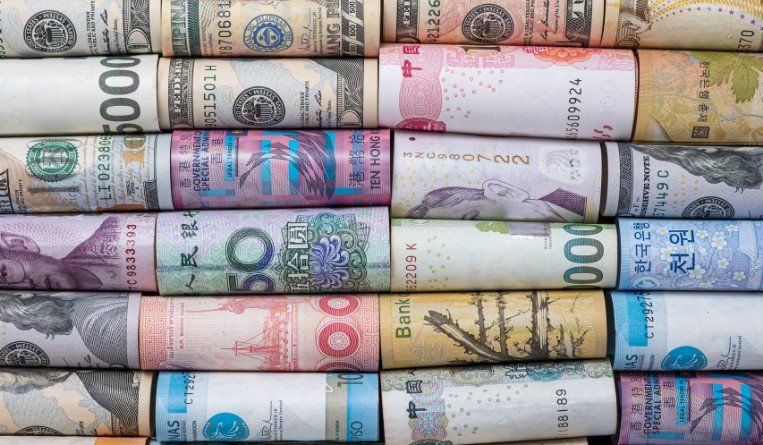World trade generally, and most of the world’s economies, were affected, in some form or the other, as Covid-19 raged in all its ferocity but the consolation was, as some experts at the United Nations say, “things could have been worse.”
In a recent report captioned Out of the frying pan … into the fire? on the pandemic’s impact on global trade and economies in 2020, with lost earnings running into trillions of dollars, the United Nations Conference on Trade and Development (UNCTAD) also highlighted the remarkable resilience demonstrated by many countries to minimize their losses – and even emerge stronger, in some cases.
According to UNCTAD, the global economy posted its sharpest annual decline in 2020 in output since the 1940s, when official data was first recorded.
Indeed, Richard Kozul-Wright, head of UNCTAD’s Division of Globalization and Development Strategies, recently spoke of multilateralism having “essentially lost its mojo.”
In a year that saw an estimated 3.9% drop in global output, the situation could have been worse had it not been for strong performances by China and the United States. Kozul-Wright also highlighted the fact that the debt relief initiatives for several developing countries, which only three years ago held out the promise of bolstering world trade, had been “extremely weak,” particularly at a time when they feared losing out in terms of foreign direct investment.
On a regional basis, the UNCTAD data suggested that East Asia and Latin America fared “a little better than expected” – likely shored up by Brazilian growth – but Europe, India and South Africa did worse.
“Positive surprises” were Brazil, Turkey and the United States, thanks to large relief measures that acted as a shock-absorber for recession, while rising commodity and asset prices spurred growth.
The rebound in raw material prices also benefited “several” developing African economies, while the region as a whole saw lower-than-expected pressure on public health systems from Covid-19, UNCTAD said.
However, economic recovery and world trade were driven, largely, by East Asia in the final quarter of 2020.
Without the resilience of the economies of East Asia and the Pacific, there would have been no global trade recovery at the end of last year, UN analysts said.
According to UNCTAD, exports from East Asia surged some 12% in the last quarter of 2020, while imports increased by about 5%.
These results followed a 3% growth in Chinese exports in the third quarter of the year over the corresponding period in 2019; this was “the exception” in an overall downturn in nearly all major economies.
In contrast to the market share gains for China and East Asian economies, most other regions saw continuing “negative trends,” UNCTAD said in its latest Global Trade Update.
These included Brazil – whose fourth quarter 2020 goods and services exports were down 4% and 17% respectively – Russia (19%, 34%), India (5%, 8%) and the United States (5%, 26%).
By contrast, China saw a 17% boost in exports in goods and a 2% increase in services exports. South Africa also saw a 15% rise in goods shipped abroad (with a 64% drop in services exports) while both Japan and the European Union saw a 3% increase in goods exports (and a 20% and 14% drop in services exports, respectively).
Generally, trade among countries in the Global South remained “well below average,” except for East Asia, UNCTAD said.
Tentative projections for 2021 indicate a slow recovery in goods’ exports (down 1.5% on the last quarter of 2020) and a further decline in services (of a full 7% over the last quarter of 2020) largely because of continued disruptions in the travel sector.
While world trade was hit by the pandemic in 2020, the Asia-Pacific trade faced a “less bad” impact than the other regions, according to the UN-affiliated Economic and Social Commission for the Asia-Pacific (ESCAP). Despite the sharp fall in the 2020 global trade and the lingering trade tensions, Asia-Pacific region is expected to perform relatively “less badly” than the rest of the world, ESCAP said.
The decline in world trade in 2020 is estimated to be around 14.5% and, following that trend, Asia-Pacific trade could decline by 9-10%.
ESCAP experts caution that the path towards a full trade recovery remains “highly uncertain,” with unfavourable macroeconomic conditions in many economies along with high unemployment, debt and deflation, and underlying structural challenges impeding a fast rebound.
According to Armida Salsiah Alisjahbana, ESCAP’s executive secretary, the pandemic’s “devastating effect” on both developed and developing economies also risks pushing millions back into poverty.
“I urge countries in the region to work towards developing a better set of trade rules that are resilient in times of crisis and stimulate sustainable economic recovery for inclusive and greener economies.”
Meanwhile, stakeholders in world shipping have expressed appreciation for the frontline role played by seafarers to keep shipping moving in the midst of the pandemic crisis. “The impact on world trade would have been far more severe if these frontline workers had not engaged in keeping shipping and world trade moving,” Stephan Jaeneke, a German shipping broker, told Asia Cargo News. The seafarers, unlike the frontline workers in the medical and allied professions, have remained the “unsung heroes” of the pandemic because they have largely been invisible, working mostly away from public attention.
UNCTAD also acknowledged in its annual report on the shipping industry that the industry played a vital role in the global response to the Covid-19 pandemic, and demand for its services had limited the annual decline in maritime trade volumes in 2020.
Shipping was already “pretty depressed” in 2019, as trade protectionism, slower oil demand and tariff wars slashed its growth rate to 0.5%, the lowest since the 2008 financial crisis, Shamika Sirimanne, director of UNCTAD’s Division on Technology and Logistics, said at a press conference.
“This brings me to the other point: the unsung heroes who put food on our table. And these are the seafarers. They have been making huge personal sacrifices throughout this pandemic. Large numbers of seafarers were stuck in ships for many months, and they were unable to sign off after long tours of duty to go home,” Sirimanne said.

Manik Mehta



